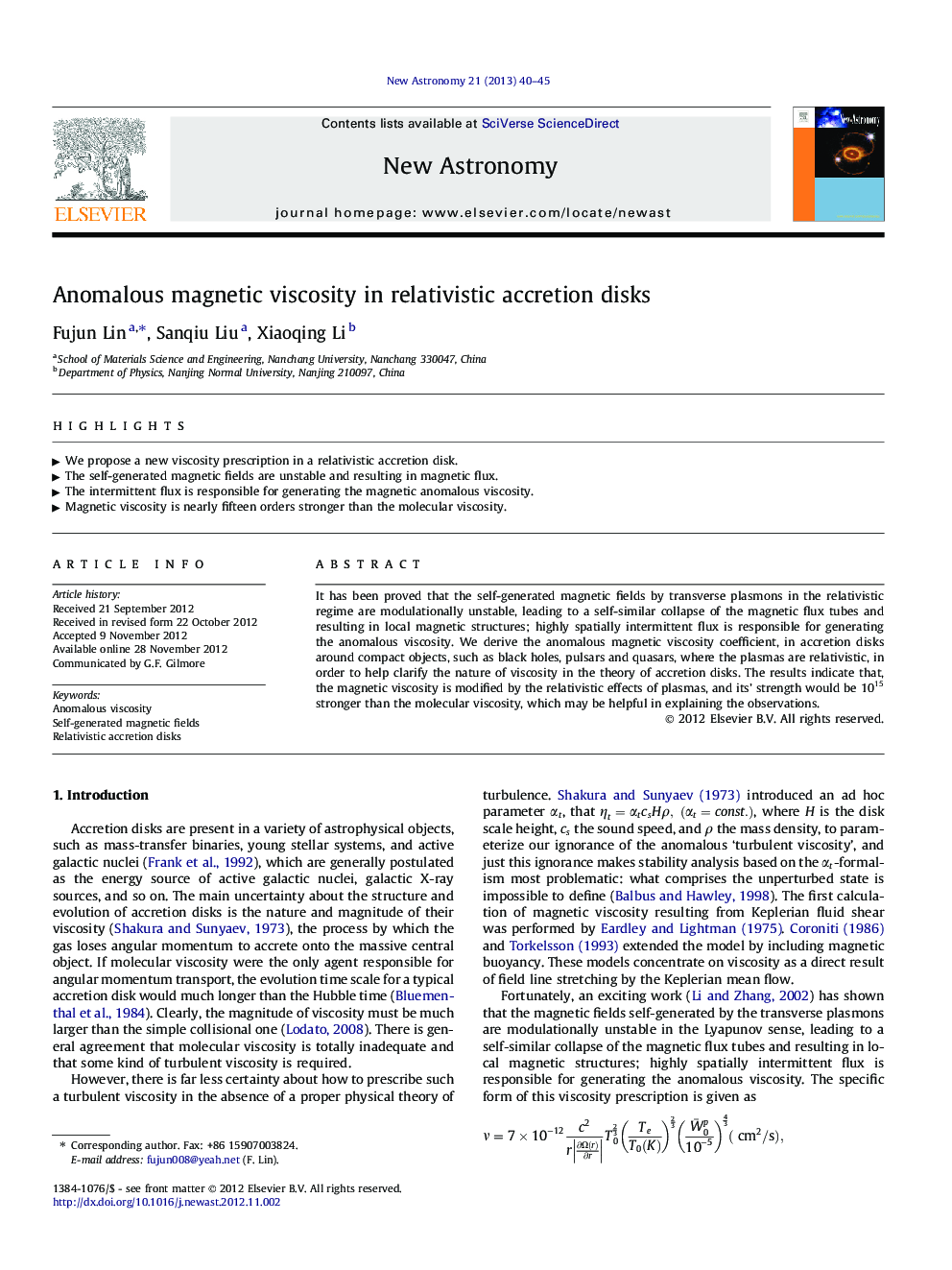| Article ID | Journal | Published Year | Pages | File Type |
|---|---|---|---|---|
| 1779099 | New Astronomy | 2013 | 6 Pages |
It has been proved that the self-generated magnetic fields by transverse plasmons in the relativistic regime are modulationally unstable, leading to a self-similar collapse of the magnetic flux tubes and resulting in local magnetic structures; highly spatially intermittent flux is responsible for generating the anomalous viscosity. We derive the anomalous magnetic viscosity coefficient, in accretion disks around compact objects, such as black holes, pulsars and quasars, where the plasmas are relativistic, in order to help clarify the nature of viscosity in the theory of accretion disks. The results indicate that, the magnetic viscosity is modified by the relativistic effects of plasmas, and its’ strength would be 10151015 stronger than the molecular viscosity, which may be helpful in explaining the observations.
► We propose a new viscosity prescription in a relativistic accretion disk. ► The self-generated magnetic fields are unstable and resulting in magnetic flux. ► The intermittent flux is responsible for generating the magnetic anomalous viscosity. ► Magnetic viscosity is nearly fifteen orders stronger than the molecular viscosity.
